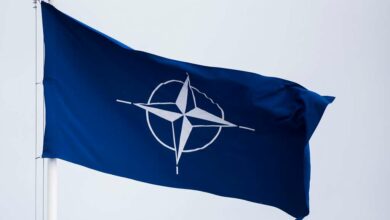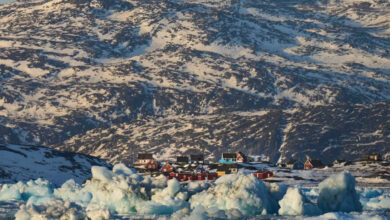BALANDI, Afghanistan — A US service member walked out of a base in southern Afghanistan before dawn Sunday and started shooting Afghan civilians, according to villagers and Afghan and NATO officials. Villagers showed an Associated Press photographer 15 bodies, including women and children, who they said were killed by the American.
The shooting could deepen strife between US forces and their Afghan hosts just as weeks of violence set off by the burning of Muslim holy books at a US base had started to die down. The burnings sparked violent protests and attacks that killed some 30 people. Six US service members have been killed in attacks by their Afghan colleagues since the Quran burnings came to light.
NATO officials apologized for Sunday's shootings.
"I wish to convey my profound regrets and dismay at the actions apparently taken by one coalition member in Kandahar province," said a statement from Lt. Gen. Adrian Bradshaw, the deputy commander of NATO forces in Afghanistan.
"One of our soldiers is reported to have killed and injured a number of civilians in villages adjacent to his base. I cannot explain the motivation behind such callous acts, but they were in no way part of authorized ISAF military activity," he said, using the abbreviation for NATO's International Security Assistance Force.
NATO spokesman Justin Brockhoff said a US service member had been detained at a NATO base as the alleged shooter. The casualties were evacuated to NATO medical facilities, he added.
The incident took place in two villages in the Panjwai district of southern Kandahar province. The villages — Balandi and Alkozai — are about 500 meters away from a US base. The shooting started around 3 am, said Asadullah Khalid, the government representative for southern Afghanistan and a member of the delegation that went to investigate the incident.
A resident of the village of Alkozai, Abdul Baqi, told the AP that, based on accounts of his neighbors, the American gunman went into three different houses and opened fire.
"When it was happening in the middle of the night, we were inside our houses. I heard gunshots and then silence and then gunshots again," Baqi said. There was no immediate verification of his account.
Helicopters were circling overhead in the village as a delegation from the Kandahar province Gov. Tooryalai Wesa's office arrived to determine exactly what happened in Alkozai and nearby Balandi village.
There were reports of protests in Panjwai following the shooting and the US embassy warned travelers in Kandahar province to "exercise caution."
An AP photographer saw 15 bodies between the two villages. Some of the bodies had been burned, while others were covered with blankets.
Khalid, the government representative, said he had tallied 16 dead, a number that matched accounts from villagers.
Twelve of the dead were from Balandi, said Samad Khan, a farmer who lost all 11 members of his family, including women and children. Khan was away from the village when the incident occurred and returned to find his family members shot and burned. One of his neighbors was also killed, he said.
"This is an anti-human and anti-Islamic act," said Khan. "Nobody is allowed in any religion in the world to kill children and women."
Khan demanded that Afghan President Hamid Karzai punish the American shooter.
"Otherwise we will make a decision," said Khan. "He should be handed over to us."
Residents in Alkozai village also demanded that Karzai punish the American or hand him over to the villagers. The four people killed in the village were all from one family, said a female relative who was shouting in anger. She did not give her name because of the conservative nature of local society.
"No Taliban were here. No gunbattle was going on," said the woman. "We don't know why this foreign soldier came and killed our innocent family members. Either he was drunk or he was enjoying killing civilians."
The Taliban called the shootings the latest sign that international forces are working against the Afghan people.
"The so-called American peace keepers have once again quenched their thirst with the blood of innocent Afghan civilians in Kandahar province," The Taliban said in a statement posted on a website used by the insurgent group.
Just as news of the incident started to break, Karzai stressed the importance of foreign forces leaving Afghanistan to preserve the country's national sovereignty in a speech at a public even in Kabul.
Any international forces that remain after 2014 — when Afghans are scheduled to take over responsibility for security countrywide — would have to operate under strict guidelines governing their responsibilities and when they could leave their bases, he said.
"We have a strong army and police, so it is to our benefit to have good relations with the international community, not have international troops in our country," Karzai said. His office had no immediate comment on the shootings in Kandahar.
The president has demanded that international forces stop night raids on the homes of suspected militants as a condition to signing the strategic partnership agreement.
The raids have caused widespread anger among Afghans, who say civilians too often end up the victims of violence or indignities during the raids.
Some of the most egregious examples of misconduct, however, have not come from night raids.
Four soldiers from a Stryker brigade out of Lewis-McChord, Washington, were sent to prison in connection with the 2010 killings of three unarmed men during patrols in Kandahar province's Maiwand district, which is just northwest of Panjwai. They were accused of forming a "kill team" that murdered Afghan civilians for sport — slaughtering victims with grenades and powerful machine guns during patrols, then dropping weapons near their bodies to make them appear to have been combatants.
And in January, before the Quran burning incident, a video that purportedly showed US Marines urinating on corpses of men they had killed sparked widespread outrage.
President Barack Obama has apologized for the Quran burnings and said they were a mistake.



